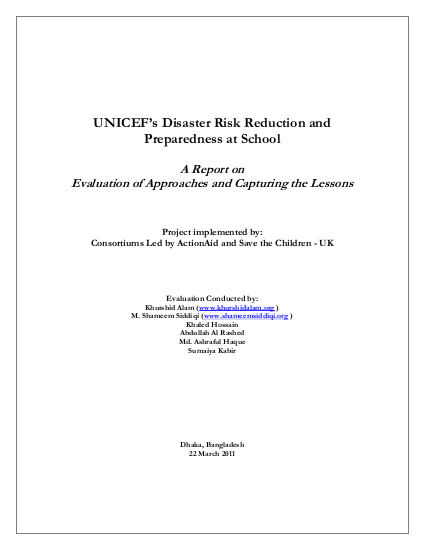
Disasters pose a serious risk to children‘s access to quality education. Disasters threat life and wellbeing of students and education staff as well as limit their access to school, deteriorate quality of education, delay recovery of school and increase drop-out. The situation is likely to exacerbate by the impact of climate change as well as threat of earthquake.
The government of Bangladesh (GoB) undertook a number of initiatives e.g. improvement of physical infrastructure and inclusion of disaster in the school curriculum. Such initiatives reduced the physical risk, but challenges remain in the alignment education and disaster risk management system of the country. These challenges were highlighted in the discussion after the two massive disasters in 2007. The Education Cluster, led by GoB and UNICEF, piloted a set of approaches to find an effective strategy to protect primary education from disasters. With funding support from UNICEF Bangladesh, the project was implemented by two consortiums led by Save the Children UK (SC-UK) and ActionAid International Bangladesh (AAIB). The project worked with 1,400 schools in flood and cyclone affected areas in 2009 and 2010.
This summary presents the key lessons from the above-mentioned pilot project. UNICEF commissioned an evaluation to examine the effectiveness, efficiency, sustainability and replicability of the various institutional and programmatic approaches to recommend a set of approaches that can be replicated at scale.